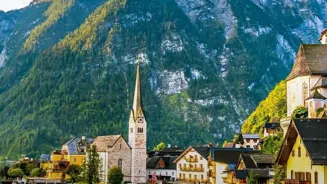Embark on your dream European road trip! Discover the ultimate guide to planning and enjoying every moment. Read more to make your journey a reality
Europe, with its rich history, diverse cultures, and
stunning landscapes, is a dream destination for many Indian travellers. And what better way to explore this continent than on a road trip?
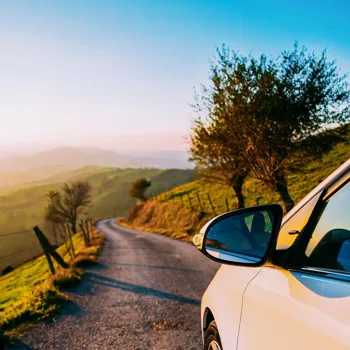
Imagine cruising through the rolling hills of Tuscany, driving along the picturesque Amalfi Coast, or exploring the fairytale castles of Germany – all at your own pace. But planning a European road trip from India can seem daunting. Fear not!
This ultimate guide will break down the process, making your dream road trip a reality.
Visa and Documentation: Your First Hurdle
First things first, you need a Schengen visa. This visa allows you to travel freely within the Schengen area, which includes most of the European Union countries. Start the visa application process well in advance, ideally a few months before your intended travel date.
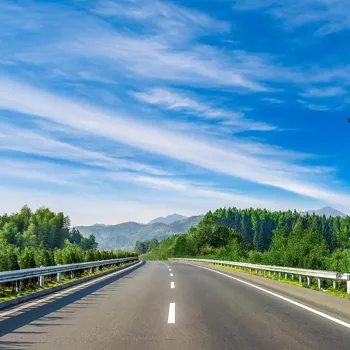
Different countries have different requirements, so check the specific guidelines on the embassy or consulate website of the country where you plan to spend the most time.
Ensure you have all the necessary documents, including your passport, visa application form, proof of travel insurance, flight bookings (if applicable), hotel reservations (if applicable), and a detailed itinerary outlining your planned route.
A well-structured itinerary is crucial, as it shows the visa authorities that you have a clear plan for your trip. Carry extra copies of your passport, visa, and other important documents, both physical and digital, and store them separately.
Choosing Your Wheels: Renting vs. Leasing
The next big decision is how to acquire a vehicle. You have two main options: renting or leasing. Renting is generally more suitable for shorter trips, say a few weeks. Several international car rental companies operate in Europe, such as Avis, Hertz, and Europcar.

Compare prices and read reviews before making a booking. Consider factors like included insurance, mileage limits, and the drop-off location. For longer trips, leasing might be a more economical option.
Leasing companies offer tax-free rates for non-EU residents, which can be significantly cheaper than renting for extended periods. When choosing a car, think about your needs and budget.
A compact car is ideal for navigating narrow city streets and saving on fuel, while a larger vehicle might be more comfortable for long drives, especially if you're travelling with family or a lot of luggage. Don't forget to factor in toll charges, which can vary greatly between countries.
Crafting Your Route: A Tapestry of Destinations
The beauty of a road trip lies in its flexibility, but a well-planned route is essential. Start by identifying the countries and regions you want to visit. Europe is incredibly diverse, so tailor your route to your interests. Are you passionate about history?

Focus on countries like Italy, Greece, and Spain. Do you love nature? Explore the Swiss Alps, the Scottish Highlands, or the Norwegian fjords. Once you have a general idea of your route, use online resources like Google Maps, Michelin Guide, and Via Michelin to plan the specific roads you'll take.
Consider the distance between destinations and the amount of time you want to spend in each place. Don't try to cram too much into your itinerary; allow for spontaneity and unexpected detours. Aim for a mix of major cities and smaller towns, iconic landmarks and hidden gems.
Factor in driving times, traffic conditions, and rest stops. A good rule of thumb is to drive no more than 4-5 hours per day, especially if you're sharing the driving duties. Leave room for flexibility to change your plan.
Accommodation: From Budget Hostels to Charming Hotels
Accommodation options in Europe are plentiful, ranging from budget-friendly hostels and guesthouses to charming boutique hotels and luxurious resorts. Book accommodation in advance, especially during peak season, to secure the best deals and avoid disappointment. Websites like Booking.

com, Airbnb, and Expedia offer a wide range of options. Consider staying in a mix of different types of accommodation to experience the local culture and cuisine.
In smaller towns and villages, look for independently owned hotels and guesthouses, which often offer a more authentic and personalized experience. If you're travelling on a budget, consider staying in hostels or camping. Hostels are a great way to meet other travellers and can be very affordable.
Camping is a fantastic option for nature lovers, allowing you to immerse yourself in the stunning landscapes of Europe.
Navigating and Communications: Staying Connected
Staying connected is crucial for navigation, communication, and accessing information on the go. Before you leave India, ensure your mobile phone is unlocked so you can use a local SIM card. Purchase a European SIM card with a data plan upon arrival.
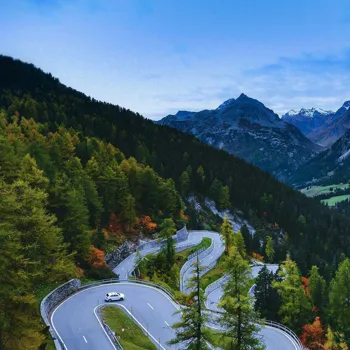
This will give you access to mobile internet for navigation, translation apps, and staying in touch with family and friends. Google Maps is an excellent navigation tool, but it's always a good idea to have a physical map as a backup, especially in areas with poor mobile reception.
Familiarize yourself with local traffic laws and regulations. In many European countries, you need to purchase a vignette (road tax sticker) to drive on highways.
Budgeting and Money Matters: Wise Spending
Europe can be an expensive destination, so it's essential to plan your budget carefully. Create a detailed budget that includes expenses like visa fees, flights, car rental or leasing, petrol, accommodation, food, activities, and insurance.
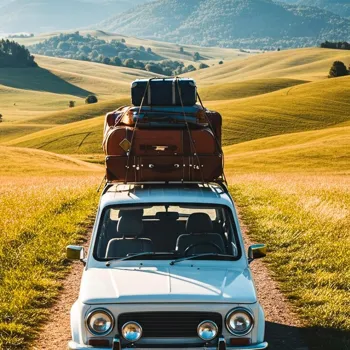
Research the average prices for these expenses in the countries you plan to visit. Consider using a travel credit card that offers rewards points or cashback on international spending. Inform your bank that you will be travelling abroad to avoid any issues with your credit or debit cards.
Withdraw some cash upon arrival for small expenses, but avoid carrying large amounts of cash. Credit and debit cards are widely accepted in most European countries. Look for free activities and attractions, such as walking tours, museums with free admission days, and parks.
Pack light to save on baggage fees.
Ensure you have all the required documents like driving license, car insurance details, and vehicle registration handy. Be prepared for differing driving rules across the countries ensure you adhere to the local traffic laws.
Also it is better to know the emergency service numbers in each of the countries.
Always have a basic understanding of the local language. Even a few phrases can make your interactions easier.
Learning simple greetings and phrases like "hello," "thank you," and "excuse me" can go a long way in showing respect for the local culture. Plan your meals and try local food. Research about must-try food available locally across countries you will be driving.
The most important thing is to relax, stay safe, and enjoy the adventure. Europe is a beautiful and diverse continent with something to offer every traveller. Enjoy the freedom of the open road to create memories that will will last for a lifetime.
AI Generated Content. Glance/InMobi shall have no liability for the content